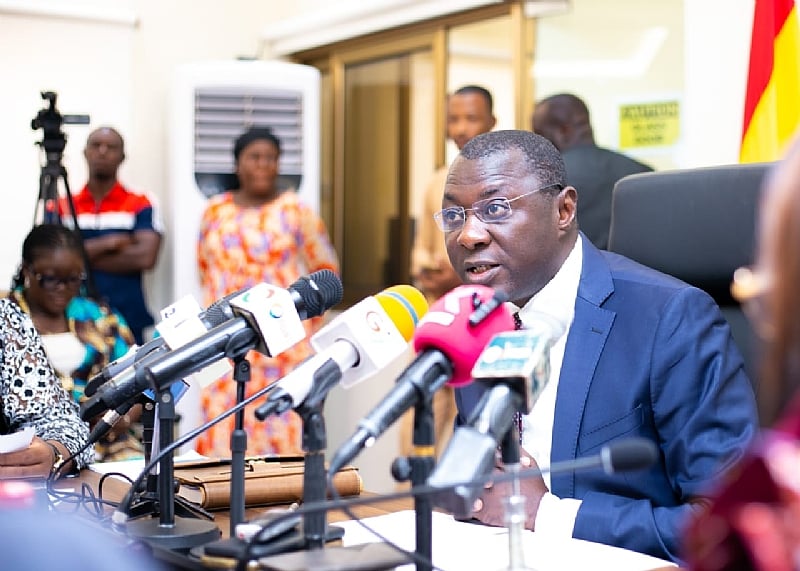Ghana’s public debt has soared to GH¢761.2 billion (approximately $51.1 billion), now constituting a staggering 75.7 percent of the country’s Gross Domestic Product (GDP). This sharp rise from GH¢633.3 billion earlier this year and GH¢587 billion in 2023 signals escalating fiscal pressures as the nation grapples with a myriad of economic challenges. The increase in debt levels serves as a stark indication of the difficulties faced by the government in managing fiscal affairs amid a complex landscape that necessitates external debt restructuring. As the Bank of Ghana (BoG) data reveals, the growing public debt highlights the urgent need for effective economic management strategies to mitigate the potential consequences of financial instability.
A notable component of this debt explosion is Ghana’s external debt, which has increased to 47.1 percent of GDP, amounting to GH¢470.3 billion (about $31.6 billion). This marks a significant rise from the 36 percent recorded at the beginning of the year. These figures not only reflect the country’s efforts to stabilize its balance of payments but also raise concerns over the sustainability of such high levels of external borrowing. Despite the increase, it is worth noting that external debt as a percentage of GDP remains below the 39.2 percent recorded a year ago, suggesting some fluctuations in external debt management. Nonetheless, the widening gap in public and external debts raises alarms about Ghana’s capability to fulfill its repayment obligations without incurring even further economic strain.
Amidst the current debt situation, Ghana’s nominal GDP, now estimated at GH¢1.02 trillion, has sparked worries about the nation’s overall economic health. The rising debt burden relative to GDP indicates that the government may encounter difficulties in managing financial obligations, potentially leading to adverse economic outcomes such as inflation, currency devaluation, or reduced public spending on vital services. Analysts have begun to scrutinize government fiscal policies closely, particularly as they relate to the management of public finances and the efficacy of measures aimed at curbing the rising debt levels. The challenge of striking a balance between necessary spending and prudent fiscal management continues to weigh heavily on the administration.
In light of these concerns, internal and external stakeholders, including investors and global financial institutions, are now closely monitoring Ghana’s pursuit of debt relief from external creditors. The increase in public debt levels underscores the critical importance of addressing public finance challenges to foster confidence in Ghana’s economic management. As the government engages with creditors and pushes for a debt restructuring plan, the need for transparency and accountability in fiscal policies becomes imperative. This delicate balancing act will be essential in maintaining investor trust while attempting to implement solutions to alleviate the rising debt burden.
Moreover, the data presents a compelling case for the urgent need for structural reforms aimed at restoring macroeconomic stability. Given Ghana’s historical vulnerabilities to external shocks, implementing reforms that enhance resilience is essential to minimizing the risk of further debt distress. The government must explore avenues to diversify its revenue streams while also implementing a tighter fiscal discipline to avoid excessive borrowing. Structural reforms should also focus on improving public sector efficiency, fostering economic growth, and enhancing the overall investment climate to encourage both domestic and foreign investment.
Ultimately, the situation surrounding Ghana’s public debt illustrates a critical intersection of fiscal policy, economic health, and the need for sustainable growth strategies. With rising debt levels posing substantial risks to the nation’s economic future, proactive measures are necessary to navigate the treacherous waters of fiscal management. Policymakers must engage in comprehensive debt and economic strategies that prioritize macroeconomic stability while working collaboratively with stakeholders to implement necessary reforms. As Ghana strives to address its debt crisis, the long-term sustainability of its economic policies will be paramount in achieving economic recovery and prosperity.


